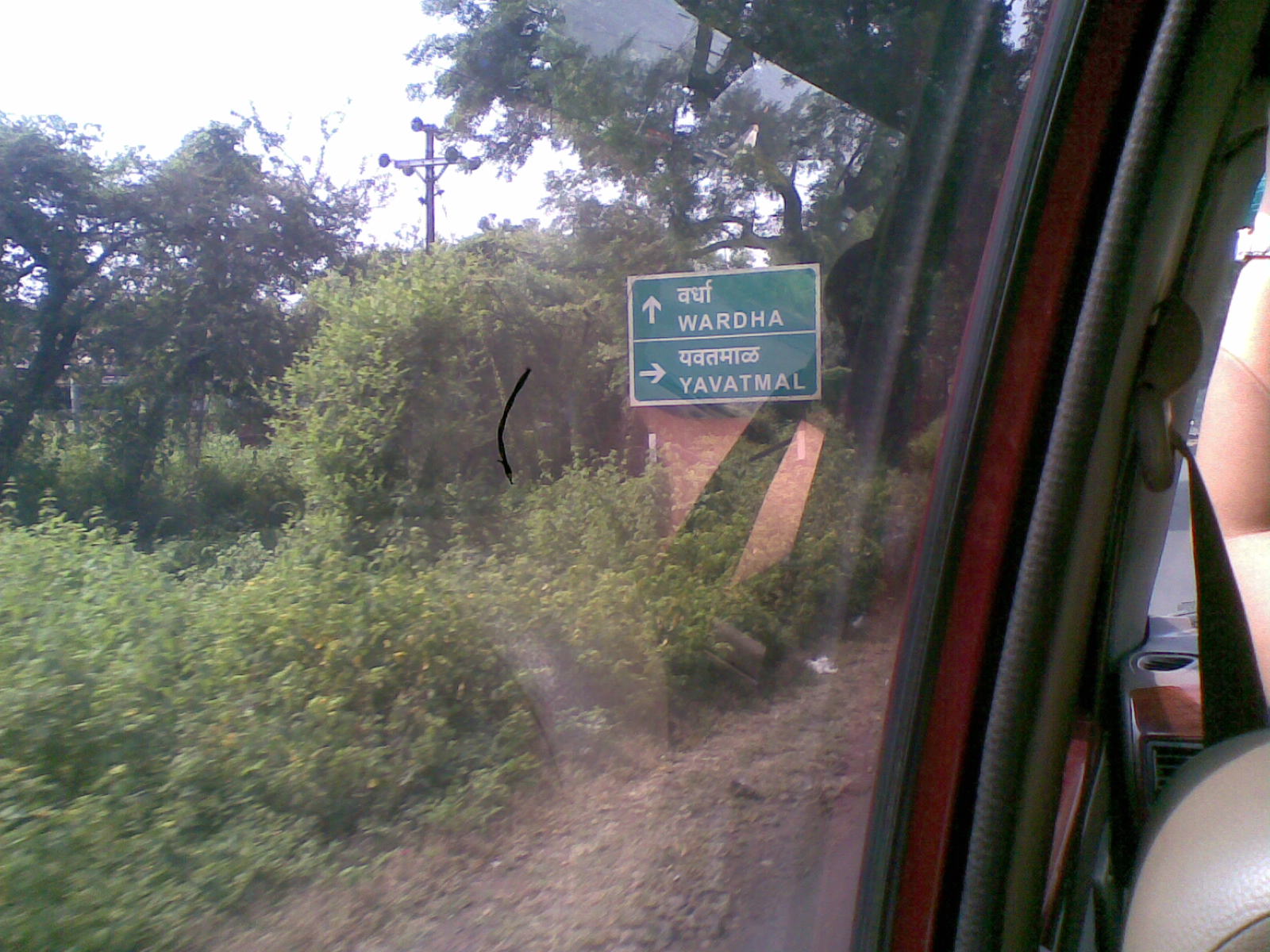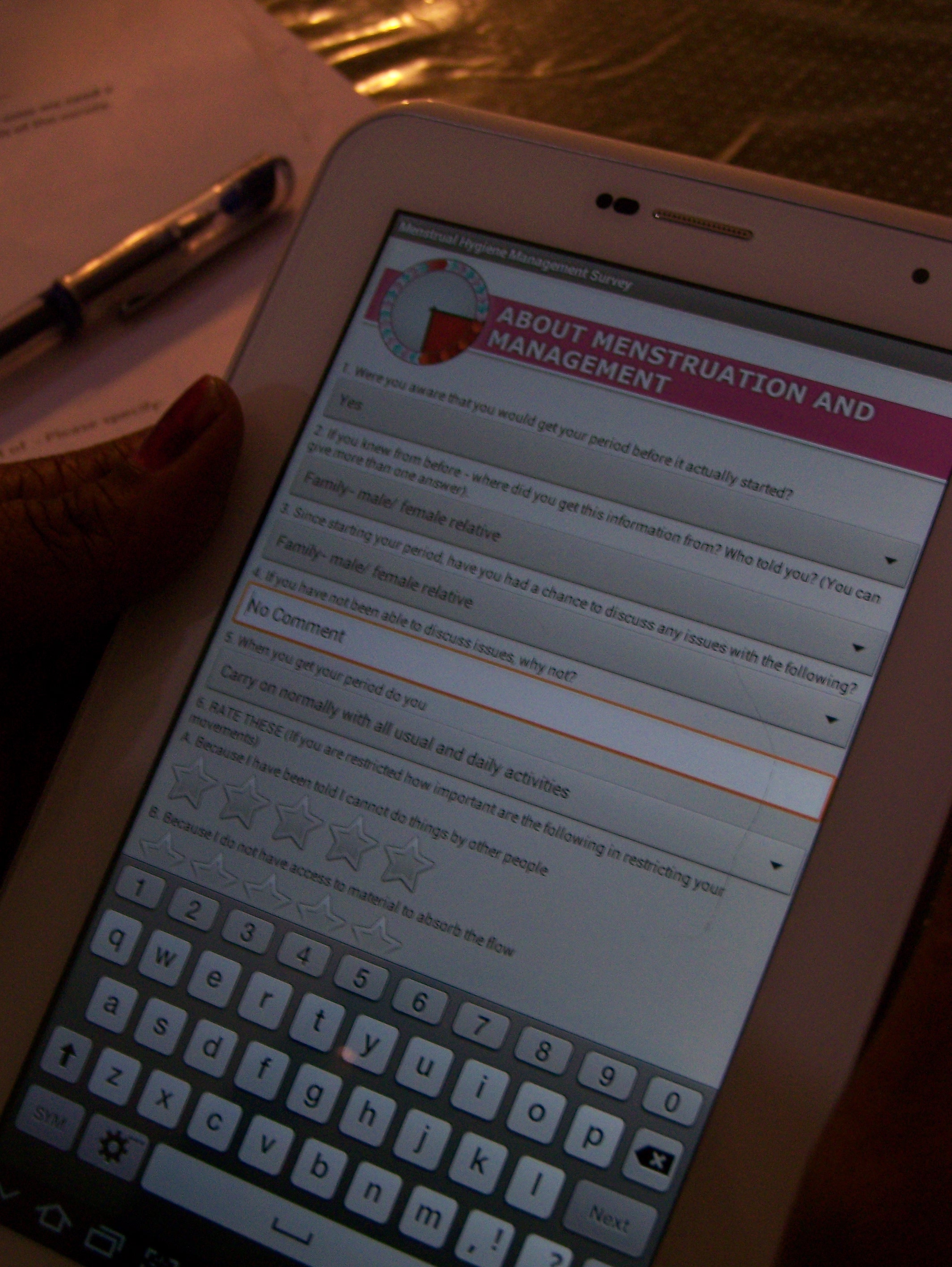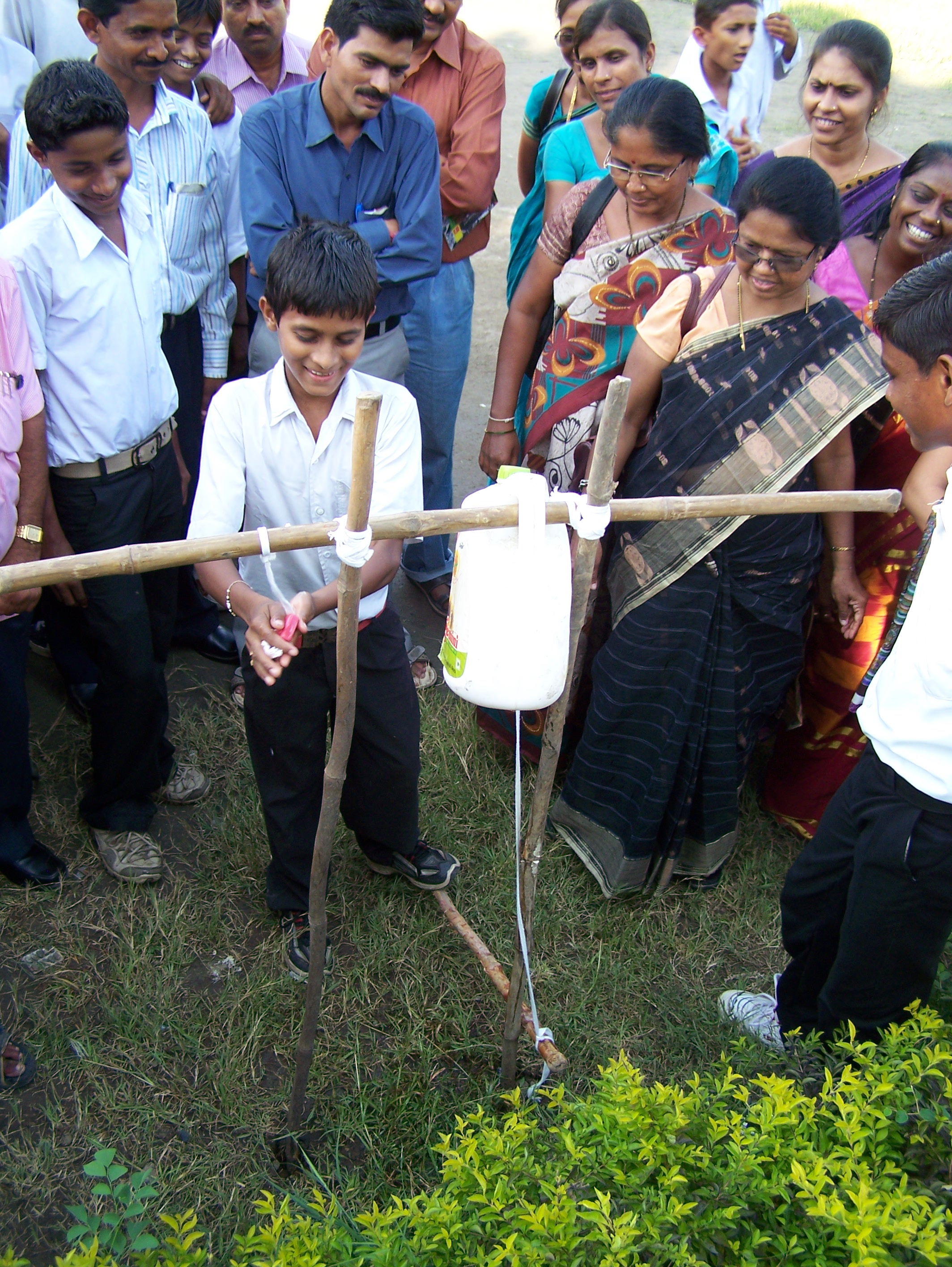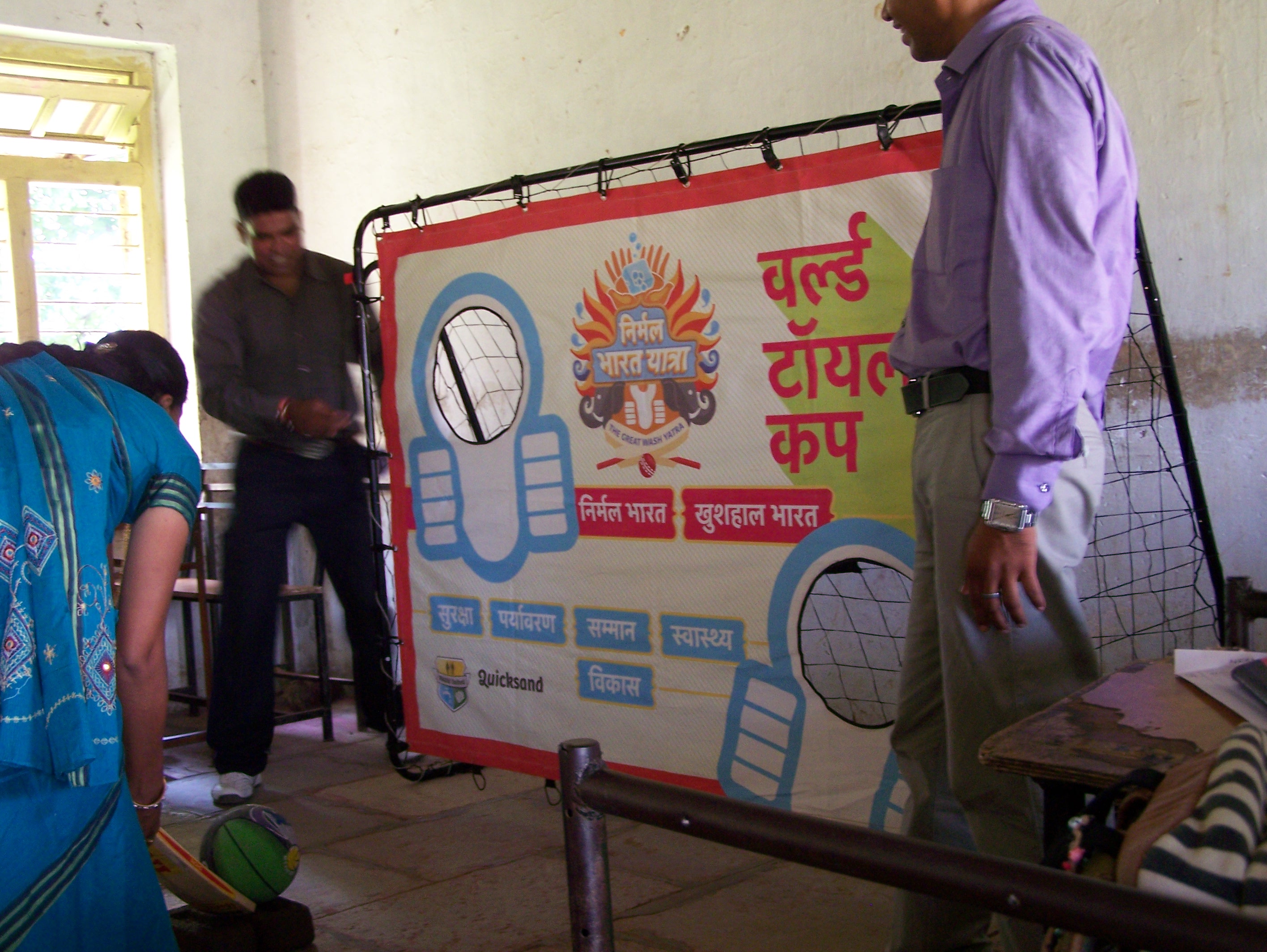September 30th - The skies poured out the day we were to leave for Nagpur. The morning shower felt like a blessing. Thankful, but sceptical of the weather, our biggest concern was whether the rains would follow us. In Nagpur, the moment we stepped out the heat hit us. Clear skies welcomed us and for that we were grateful.

En route to Wardha
The cab ride from Nagpur to Wardha was a good one. We were still getting used to the heat that this region experiences. The sun still defines movement for people here. Post 12, the crowds thin, streets wear a deserted look, if at all people need to venture out they wrap themselves completely to avoid sun burns and tanning.
Rain – there was no sign of it. Good? We thought so.
We began to get a good feeling about this trip – being part of Nirmal Bharat Yatra – fifty days on the road covering six cities (Wardha, Indore, Kota, Gwalior, Gorakpur, Bettiah) in five states (Maharastra, Madhya Pradesh, Uttar Pradesh and Bihar)– creating awareness about hygiene and sanitation.
For the three of us – Aneesha Menon, Urmila Chanam and I, the journey looked promising. We had agreed to find order in our own chaos.
October 1 – T3 & field trips
It felt like we were on a mission. Nine in the morning we were sitting across strangers, notepads, pens and eager faces. The schedule promised a packed day and it did start like clock-work – on time. We met Zelda Yanovich, technical officer, Networking and Knowledge management, Water Supply & Sanitation Collaborative Council (WSSCC), who briefed us about the Menstrual Hygiene Management (MHM) lab and its role in schools and during the yatra. Maria Fernandes and Vijay Gawade facilitated us and the local volunteers. We watched them at work, learning how they talk about a subject that is shrouded in silence.

Menstrual Hygiene Management Tablet training
I had accompanied Maria for the Train-the-trainer and her session was in the afternoon, post lunch. We waited our turn, watching the other teams train teachers on the nuances of hygiene and sanitation. Wash United, who has developed the yatra along with Quicksand, in collaboration with the Nirmal Bharat Abhiyan, showed the teachers a low-cost and effective way to encourage hand-washing among students.

Tippy tap demonstration in a school
The emphasis of this pre-yatra outreach is to get teachers mobilised. Teachers are considered a medium to promote better hygiene and sanitation among children.
Therefore, in the training, teachers were taught a18-steps hand-washing technique. Keeping in mind the monotony of theory-based learning, these ‘lessons’ are high on activities. Teachers adapted well to their new role – letting go of inhibitions, participating in activities as well as discussions.
Teachers played goo-in-the-loo (also known as the poo-in-the-loo) game, specially designed to get the message of using toilets to end open-defecation. There were teams that emphasised the benefits of using toilets – suraksha (security), pariyavarn (environment), samman (respect) and vikas (prosperity). Apart from being a laughter-filled game, it allowed healthy discussion on the why’s of open-defecation.

Teachers play World Toilet Cup
Post lunch, Maria began her session on Menstrual Hygiene Management (MHM). Without an elaborate preface, she got straight to point with pointed questions – What are the problems faced by girls in school during their monthly cycle; what are the problem faced by female teachers in school during their monthly cycle and lastly, what are the problems that the male teachers face when girls have their monthly cycle?
For the first time such a discussion was being facilitated during a training session and the look on the teachers face said it all. There was awkwardness, a little bit of silly giggle and laughter as men made light of the situation and women smirked. It took some time for the group of 16 to comfortably discuss, even then it was all done under the pretext of ‘serious training’.
Shows how, even today, in rural areas and may be even urban centres we aren’t comfortable discussing about a natural process. It is a bodily function, yet, it is never spoken about as just that. The training brought to light the awareness levels of teachers – female as well as male.
Being educators doesn’t automatically transform them into change-makers. Outside the school they are individuals who follow practises, not necessarily questioning their relevance. In that, it was a tough job as a facilitator to give their thoughts a different direction.
Then to be able to have a discussion on whether such a topic needs an open platform, shows Maria’s tenacity as a trainer passionate to break the culture of silence. She does it one training at a time. While taboos were discussed, and teachers pointed at the hurdles of initiating discussion among students – girls and boys, Maria patiently listened and prescribed easy solution(s). It was fascinating not just to watch the discussion but also to watch a trainer charming her way. Her mantra is simplicity.
As the session ended, the teachers seemed more charged to tackle the situation. Funding may be a concern, even water, but they came up with short-term solutions to ensure girls have a better experience in school during their cycle. Whether those promises will translate into concrete steps in the right direction only a follow up, in the future, will show.
October 2:
On Gandhi Jayanti, being in Sewagram felt surreal, one doesn’t just plan a trip to Sewagram. It was a day of rushed check-outs and check-ins and in that order. The ground was ready for D-day, the sun shining down our heads, got swallowed by menacing black clouds. The afternoon rain dissolved as the big rain drops began to beat down at us. We sat in the tent which was to be home for the next few days. Waiting for the rain lashing to subside, instead we watched as the rain filled at the edges of the tent, little streams soaked the carpeted floor. As it thinned out, the cool breeze mixed with the warmth of the earth. Twenty minutes of rain left the places slushy, drenched, and that’s when we were moved to a hotel in Wardha. Our home, until the weather cleared enough for outdoor, tent stay.
Everything was a drippy mess, as we boarded the bus to the hotel, wondered how the venue would be ready for the official opening the next day.
Morning we had checked out, by evening we were back in the same hotel. The rain had followed us from Bangalore.
By Vaishalli Chandra, India Water Portal Fellow, Arghyam
For full coverage by India Water Portal of the Nirmal Bharat Yatra, click here.
/articles/nirmal-bharat-yatra-wardha-week-was-0